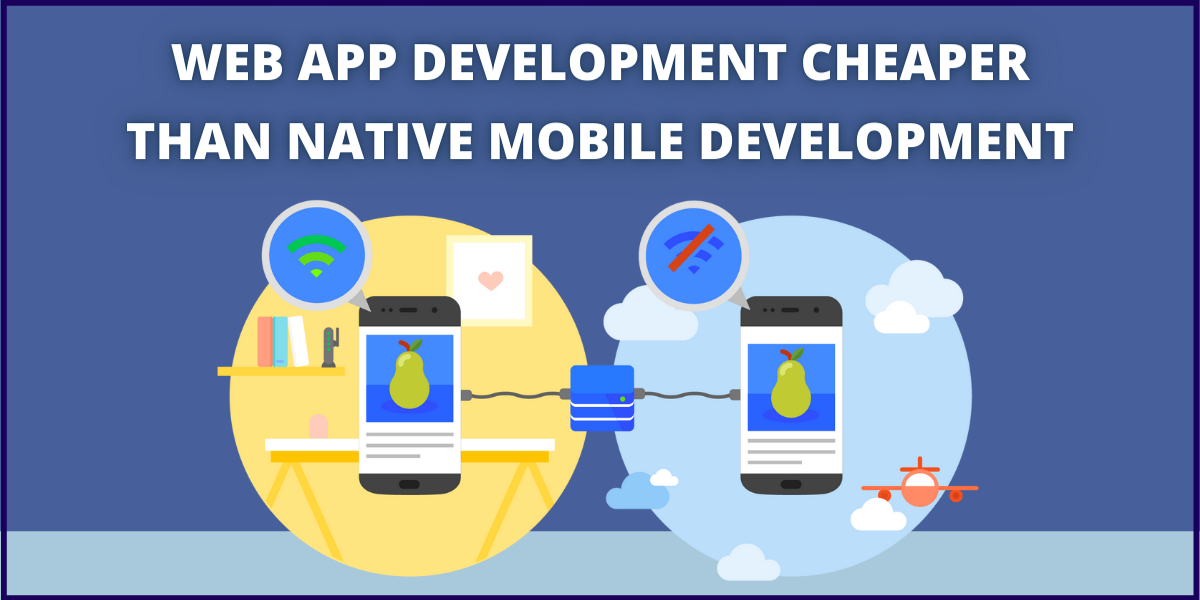It’s a frequent misperception that local mobile and online apps are interchangeable, but this couldn’t be further from actuality.
Native mobile app development is a huge industry with many tech giants investing in it. It’s vital not to mix the two—there’s a significant difference between a mobile phone application and a web based app—not only for the user but also in how they’re developed and delivered.
However, firstly it’s essential to understand the difference between web based applications and websites. A web application is fundamentally a website that responds to being seen on a mobile device by being created smoothly. There are several websites; some are inert and very scarcely updated, on the other hand some are more responsive and offer a lot of interaction. Web apps, in particular, work in the same way as downloading apps do, but you have the convenience of your mobile phone’s browser.
First, we should see what native mobile apps and web apps are:
Native Mobile Apps
Some of the most common types of applications used in today’s world are Native mobile apps. These mobile applications are specific to different platforms, which means they use a foreign language to code mobile for other platforms. For example, the IOS applications are coded in C language while android apps use Kotlin or Java.
Maga tech giants like Apple and Google will provide their application developers with their custom set of development tools, User Interface components and Software Development Kits. Native mobile apps have a massive advantage over other apps, attracting many companies and businesses.
Native apps are designed for mobile devices so they go through a very harsh yet reliable Software Testing process.
Advantages of Native Mobile Apps
- Native apps outperform the other two development methods the best.
- App stores and the entire app market provides complete support for native apps.
- Discoverability is aided through distribution in app stores.
- In terms of user input and output, native apps are more engaging and perform more smoothly.
Disadvantages of Native Mobile Apps
- Native apps employ challenging programming languages that necessitate the participation of skilled programmers.
- Native apps are more expensive to develop at the beginning than online or hybrid apps.
- For simple applications, native apps are not the best option.
Web Apps
A web application is a computer program that performs tasks over the Internet by utilizing web browsers and web technology.
Because these languages rely on the browser to render the programme executable, web applications are typically written in browser-supported languages like JavaScript and HTML. Some of the applications are dynamic and require processing on the server. Others are entirely static, requiring no server processing.
To handle data storage, retrieval of data and presenting information to the users, web applications use a combination of server-side and client-side scripts. Users can use online forms, content management systems, shopping carts, and other tools to communicate with the company. Employees can also generate documents, exchange information, collaborate on projects, and work on shared documents using applications from any location or device. Web app interfaces are also created with ReactJs development.
Advantages of Web Apps
- Web apps don’t need downloading or installing because they work right in your browser.
- They’re simple to maintain because they all use the same codebase, independent of mobile platforms.
- Web apps aren’t bound by standard operating system protocols and aren’t subject to app store approval; they can be released anytime and in any format.
Disadvantages of Web Apps
- They may not be as discoverable as mobile apps because they are not listed in a specialized database, such as the app store.
- Web apps don’t have to be certified by the app store. Therefore quality and security aren’t always assured.
- Users use various web browsers, making collecting usage patterns and performance measurements more challenging to create a product roadmap.
Why is Native App Development more expensive than Web App Development?
Mobile based applications are more costly to produce than web based applications. Because they are different for different platforms, releasing an application across several platforms entails starting from the ground up in terms of design, management and development. They are, however, significantly faster and have far more complex features and capabilities. Automation Testing also plays a huge part in the development of native mobile apps.
Local (native) mobile applications are developed utilizing distinct programming languages and Integrated Development Environments (IDEs) depending on the Operating system being used. Because Apple devices run the iOS operating system, Apple apps are written in C and developed with the Xcode IDE. Android applications are created with the help of Android Studio or Eclipse IDE and are written in Kotlin or Java.
Conclusion
The decision between online and native development is influenced by various factors, such as business objectives, app requirements, developer talent, and schedules. The bottom line is that each type of app provides a unique experience with Native Mobile application development solutions, and it’s critical to understand the benefits and drawbacks of each before diving into production.
Author BIO
 Kamal Singh is a Digital Marketing strategist at Devstringx, an automation app testing company in India. He has 5+ years of experience in the information technology industry that inspire him to share his knowledge through articles. He also works with a team of experienced creative digital marketing strategists to generate unique and data-driven campaigns. He is an expert to analyze business USP and implement effective digital marketing initiatives.
Kamal Singh is a Digital Marketing strategist at Devstringx, an automation app testing company in India. He has 5+ years of experience in the information technology industry that inspire him to share his knowledge through articles. He also works with a team of experienced creative digital marketing strategists to generate unique and data-driven campaigns. He is an expert to analyze business USP and implement effective digital marketing initiatives.



